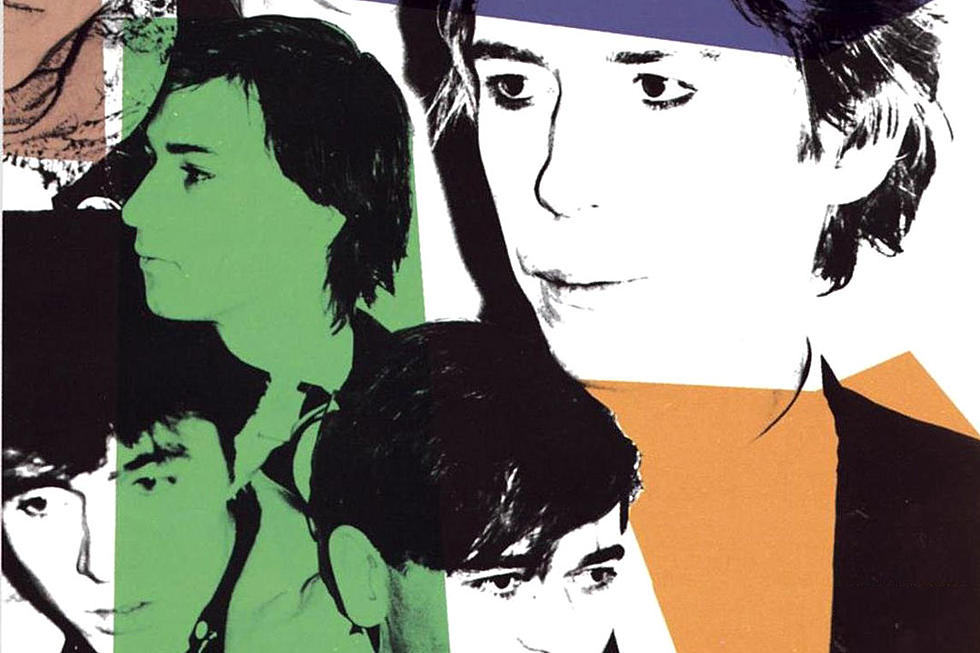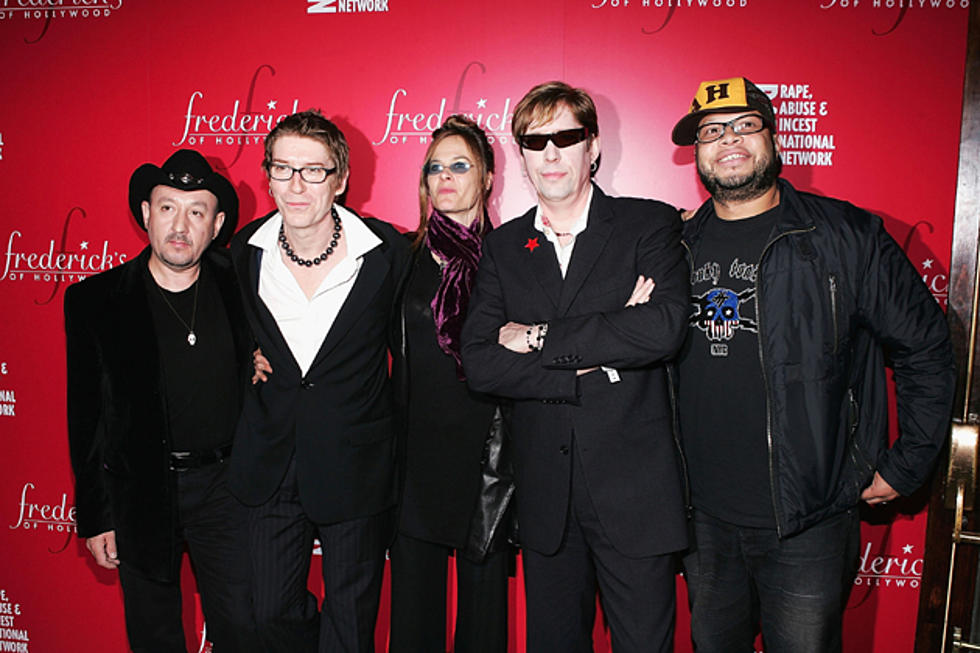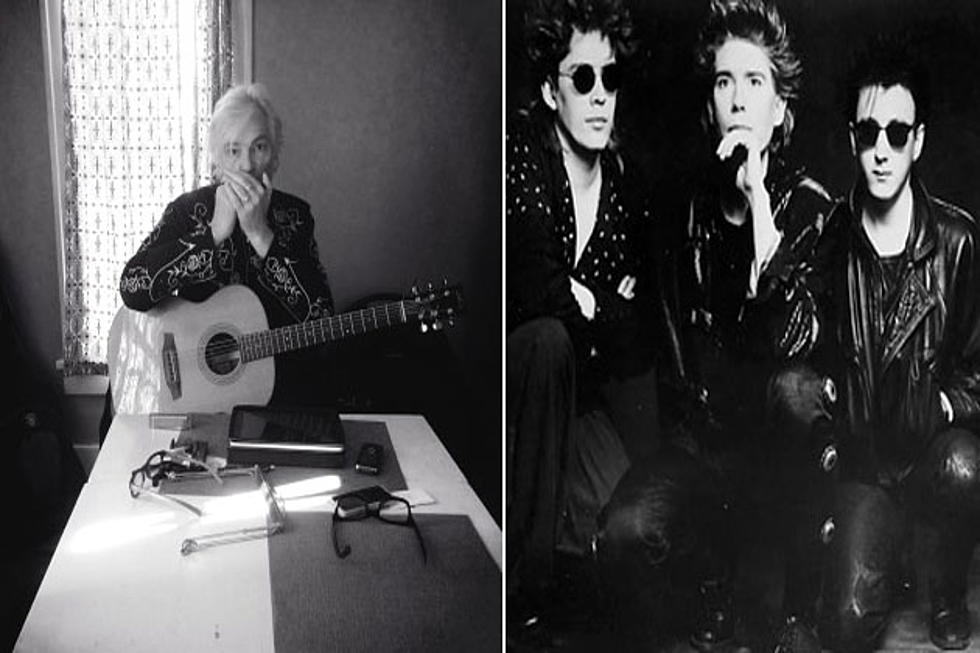35 Years Ago: Psychedelic Furs Reach a Creative Peak by Stirring in a Bit of Pop on ‘Forever Now’
The Psychedelic Furs were straddling two distinct eras in the early '80s. They began, of course, as a little-heard, studiously detached post-punk band before evolving into a more widely heard, studiously detached mainstream pop band. Forever Now, which arrived on Sept. 25, 1982, perfectly balanced the two – becoming the Furs' definitive studio effort by boldly blending these seemingly diametric impulses for the first time.
This shift was, singer Richard Butler insisted, as inevitable as it was necessary.
"We were interested in survival," he told the Los Angeles Times in 1987. "Bands like U2 and the Cure were making it, but we weren't. Our style wasn't getting through to people. We certainly weren't getting radio airplay. I wanted us to have radio airplay. I wanted as many people to find out about the band as possible."
The newfound approachability ascribed to Forever Now could also be attributed to a thinning of their ranks. Once a bulky six-piece band, the Psychedelic Furs lost both guitarist Roger Morris and saxophonist Duncan Kilburn before these sessions got underway.
"It was a bit of a dark period in the band’s history," guitarist John Ashton told Popdose in 2012. "We had played a lot in the years since our first two albums came out. It seemed like a long time, but it wasn’t, really. It was only about three years. But we had played constantly, and I guess really what was happening was that things weren’t working out anymore on a personality level."
This unsettled era was capped by a scheduling issue with long-time producer Steve Lillywhite, who was eventually replaced by Todd Rundgren. All of this somehow ended up working in the Psychedelic Furs' favor, though, as Forever Now boasted a series of evolving musical elements (backing vocals from Flo and Eddie, horn players Gary Windo and Donn Adams, Rundgren's marimba) that would never have been dreamt of during earlier sessions.
It started with a trip west. They decamped from their native London, holing up with Rundgren in upstate New York. "I know that Todd was a little surprised when only four of us showed up when there was supposed to be six," Ashton told Popdose. In a way, though, this sense that the Psychedelic Furs were a completely new band, approaching things in an entirely new fashion, made following Rundgren's new sonic paths just that much easier.
Listen to the Psychedelic Furs Perform 'President Gas'
The results still made room for edgy, throwback songs like "President Gas" and "Danger," both of which were just bursting with attitude and intellect. Elsewhere, however, the band's quick evolution was obvious: "Only You and I" – a song that actually dates back to (and, in its chorus, certainly recalls) 1981's Talk Talk Talk – was given an entirely different sheen when Rundgren decided to add a cello. "Run and Run" boasts a glittering spaciousness, and this soaring, radio-ready chorus, but with a classically cutting Furs lyric: "I've been waiting all night for someone like you, but you'll have to do." Then there was the gorgeously layered "Love My Way," a breakthrough Top 50 hit that Richard Butler said discusses the challenges of being "a girl with a gay relationship."
Five years into their career, it seems the Psychedelic Furs were ready to throw away the road map. "We wanted to try out cellos and keyboards and backing vocals," Butler told the Times. By opening up their sound, they'd pave the way to every MTV-era success yet to come. Forever Now became the Psychedelic Furs' second-ever Top 20 U.K. album but, more importantly, earned gold sales in America.
They'd traveled a long way from the days when the band's self-titled debut album stalled at No. 140 on the Billboard chart. "When we first came over here [to the United States], there were four or five us in the back of a nine-seat minibus," Richard Butler told the Tucson Weekly in 2013. "Alternative music was not really big over here. We played in places where there were only 10 people in the audience sometimes."
Finally achieving this initial, still-embryonic success, he added, didn't happen by way of some master plan, but rather "a natural sort of progression. There was no Svengali behind the scenes pulling our strings or telling us what to do. We just kept moving forward with each album, and it got bigger and bigger around us."
There was no denying, however, that they'd made a huge leap forward with Forever Now. Both Richard and his bass-playing brother Tim Butler have since described this as their favorite Psychedelic Furs album. "It's a different sort of songwriting," Tim told John Wirt of the Advocate in 2011. "It's more ups and downs and more structure to it. There's anger and energy in Talk Talk Talk, but there’s much more melody in Forever Now. Particularly from my point of view, playing-wise, I prefer Forever Now."
Listen to the Psychedelic Furs Perform 'Run and Run'
Still, this shift in dynamics wouldn't always come easy. Ashton, for instance, wasn't so sure about "Love My Way," principally because he ended up having so little to do.
"I think at the time I was just, 'Ah, whatever,'" he told Popdose. "I didn't really get it right away. ... As a song, from a guitar point of view, it’s very basic. It’s really just a very basic guitar part, and the actual song itself – it's a very simple song." In time, however, he came to understand and appreciate where "Love My Way" was headed all along. "It's the melody that’s really so catchy," Ashton added, "and the counterpoint between the marimba melody and Richard's vocals is pretty amazing."
They kept along that line, becoming ever more melodic with ever greater commercial results. "We kind of liked the more pop sound Todd gave us," Richard Butler told the Chicago Tribune in 1991, "and thought it was worth exploring further" with Keith Forsey (of Billy Idol fame) on Mirror Moves in 1984, and then with Chris Kimsey on Midnight to Midnight."
By then, however, Vince Ely had followed the others out the door, as the Psychedelic Furs moved still further away from their punky roots. In a nod to the technological bent of the era, Ashton and the Butler brothers were initially composing now on a Casio VL-1 synthesizer, leaving their drummer quite literally out of the loop.
"He, at the time, had run his course," Ashton told Popdose. "He'd kind of gotten dissatisfied with Richard, Tim, and myself. He kind of had visions of doing other things. He was a very good musician by the time he finished working with Todd, and I think it was almost kind of like he reached this point where he said, 'I've just worked with Todd Rundgren, who's my idol. I don't think it can get any better than this. I think I need to leave now.'"
As before, the Psychedelic Furs kept going steadily forward, eventually scoring a U.K. Top 20 hit with "Pretty in Pink" and then a Top 30 Billboard album with Midnight to Midnight in the years to come.
The 16 Best Bands That Came Back Again (and Again)
More From Diffuser.fm









